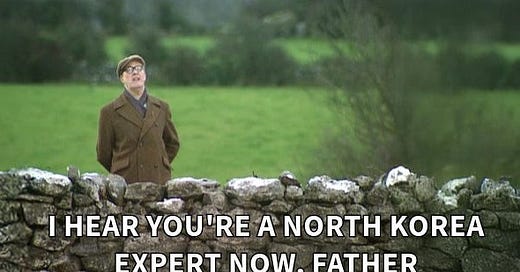Who are the pop-up North Korea experts?
The opportunistic pundits who've built a career on being available to comment on any crisis, regardless of their actual knowledge of the subject
The pop-up North Korea expert is a curious phenomenon. They appear out of nowhere whenever North Korea makes the headlines, offering their "insights" on everything from Kim Jong-un’s latest missile tests to his relationship with his sister.
These are the same people who were pontificating on different geopolitical crises just a week ago, whether it was Ukraine, the Middle East, or China. Now, with North Korea in the spotlight, they switch gears as easily as they switch networks, offering opinions that are often little more than sound bites. In the modern media landscape, becoming a "North Korea expert" appears to be less about actual expertise and more about opportunistic positioning.
This revolving door of experts is not a coincidence, but a byproduct of how modern media operates. In an age of 24/7 news, where clickbait and sensationalism are prioritized, there’s little room for genuine analysis or deep expertise. The public needs to be fed a constant diet of simplified narratives, and…



